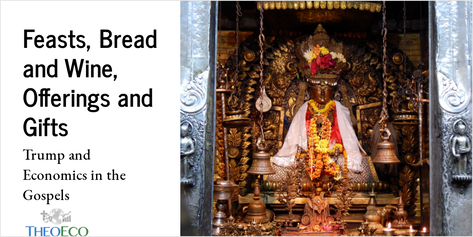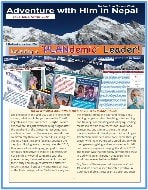 By Steve Richards United Nations’ Universal Declaration of Human Rights. Article 18. Everyone has the right to freedom of thought, conscience and religion; this right includes freedom to change his religion or belief, and freedom, either alone or in community with others and in public or private, to manifest his religion or belief in teaching, practice, worship and observance. https://www.un.org/en/universal-declaration-human-rights/ It’s about freedom of religion. Nepal’s Christian community is increasingly underground; back to its roots you could say. There are arrests and imprisonments and the constant threat thereof, simply for doing what Evangelicals do: saving souls according to Christian principals some 2,000 years in the offing that encourage conversions of the believer as a natural consequence. Nepali Christians are used to it. So too Christian based western NGO’s it would seem. An intended, and largely successful consequence, by the powers-that-be (largely Hindu centered) to keep the NGO’s largely separated from their Nepali brothers and sisters as NGO workers can also be arrested and deported if they aren’t careful. So, you have Western Christian groups in highly compromised positions. So close, and yet so far away. I get it. I understand all too well the baggage that simply comes with the word Christianity. Say Jesus and a flood of personal experiences, opinions, relationships, etc. come rushing in. Including big chunks of those in the west who agree that Christianity has no place in a place like Nepal. Most afraid we are going to mess up perfectly good cultures with our double-edged swords of history, culture, and tangled religious-economic-ecological outcomes. Most 0like the idea of Nepal, sticking with its largely Hindu culture. But this isn’t the point. It’s not up to us. Nepal has decided that freedom of religion is what they want. So much so that they have enshrined it in their constitution, just like we have in the USA and liberal democracies throughout the world. Here’s what Nepal’s constitution says: Section 26 - Right to freedom of religion: (1) Every person who has faith in religion shall have the freedom to profess, practice and protect his or her religion according to his or her conviction…No person shall, in the exercise of the right conferred by this Article, do, or cause to be done, any act which may be contrary to public health, decency and morality or breach public peace, or convert another person from one religion to another or any act or conduct that may jeopardize other's religion and such act shall be punishable by law. https://constitutionnet.org/sites/default/files/2017-07/Constitution-of-Nepal-_English_-with-1st-Amendment_2_0.pdf Sounds good right? Freedom of religion with limitations. It’s all well and good except for the part about converting another person. This makes the whole thing unworkable for religious minorities in Nepal. Don’t convert people? Don’t try to save their souls? It’s not in the evangelical DNA of Christianity ever since Christ directed folks to spread the word. Islam as well. It wasn’t so long ago when there were virtually no Christians in Nepal. Until its opening in the 1950’s as a consequence of Sire Edmund Hillary’s expeditions to climb Mt. Everest it was a Hindu Kingdom dating back to pre-history - and still was when I first visited in 1998. A civil war ushered in a new constitution complete with religious freedoms and all that we take for granted in the USA, except for one glaring omission: the ability to convince others that your religion is the one and they should try it. That can put you in jail. So where is the freedom of speech? Where is the freedom of religion? How about freedom of assembly if you are assembling to hear the Word and consider baptism? This principal of religious freedom is very much in the USA’s DNA as well. We take it for granted. It’s doubtful the pilgrims would have ever stepped foot on Plymouth Rock if not for the desire to be free to follow their religion. And this foundational Enlightenment principal found its way so elegantly in our constitution simply by saying there would be no laws at all about it in the very beginning of our Bill of Rights. The very first thing. Amendment 1 reads: “Congress shall make no law respecting an establishment of religion, or prohibiting the free exercise thereof;” https://www.law.cornell.edu/constitution/first_amendment Freedom of religion is first and foremost because it is so integral to all the others. This is not what they have in Nepal, They simply do not have freedom of religion. And they are therefore not free. Oh, compared to Chinese citizens just to the north they are, but compared to what they say they are, where they want to be, they aren’t quite there. Close but not quite you might say. Why is this an issue? Is Nepal better off economically not guaranteeing these freedoms? Given that Nepal is one of the poorest nations on earth, and Christianity generally associated with economic growth as Max Weber in 1904 demonstrated in his: The Protestant Ethic and the Spirit of Capitalism. https://christianhistoryinstitute.org/magazine/article/protestant-ethic-of-prosperity/ My personal experience includes years of relationships, days upon days of time, working together, praying together, worrying together, documenting, playing, preaching a few times, trekking to far away villages, attending baptisms, services, secret meetings, feeding, WiFi enabling, teaching, promoting, championing, loving, respecting, editing, producing, supporting, explaining, missing, and passionately advocating, for my friends in Nepal, Christian, Hindu, and Buddhist alike. It just so happens that I tend to run with the Christians. You might think I am a particularly religious person, even a zealot. I’m not. I’m an environmentalist first and foremost. I research and write about Christ not to save souls but to show to Jesus’s followers how simply and harmoniously he coexisted with the earth. I’m more in line with Thomas Berry than Joel Osteen (of whom I’m a fan and follow on Twitter). I’m also a bit of an economist by training and am panicked by Capitalism’s effects on our environment. And knowing that Christianity is at the center of so much of the devastation via its underpinnings of Capitalism and western political economies, I study and write about Christianity’s intersections with the environment and economics. So, what’s this got to do with Nepal’s Christians? Because while I’m not sure Capitalism and the ecology are particularly well suited to each other, I do have a sense that human rights are integral to an evolving communion between humankind and our planet. It is in TheoEco’s name where our ecology, economics, and theologies are inseparably woven and impacting each another. To me, it’s not about Christianity in Nepal so much as the Christians themselves. If a leading priest needs to go by Rev. X and take down a mini-documentary featuring him from YouTube I understand. If a Nepali Christian leader needs to stay off camera I get it. If Brother Barnabas needs to use an alias, I know he has a good reason. These people have families and ministries. And political and legal niceties are all well and good for a guy like me safely on the other side of the world where Christian edifices are so ubiquitous and our religious liberties guaranteed for hundreds of years now. But not when your flock is counting on you. Or your kids and spouses Shunning is the least of it. As a result, it is very difficult to bring attention to these folks. They avoid websites, they use aliases, they need yet don’t want attention. Brother Barnabas is a top Christian leader though he also must stay underground You’ve seen him in our films though not under his alias. He is a tireless advocate in Nepal, not just for Christians but for all those that marginalize along religious lines. A real lover of democracy. Want to help? Join us this weekend…
0 Comments
As we approach the inauguration we thought we would complete this series on Trump and Economics in the Gospels first begun in 2017.  At Christmas time 2020 we are in a time of feasting at Christmas though COVID-19 has made this one different than most. Feasts are hard to come by for many as food lines are ever present in the news throughout the USA, and throughout the world for many. Many are short of food at this, the time when feasts are usually had by most and loved ones gather. The traditional feasting one would expect at the White House this time of year is non-existent though we are assured that Mar-a-Lago is offering feasting options. https://www.maralagoclub.com/dining. In the time of the Gospels, as today, there was apparently a lot of big eating going on. Feasts are some of the most commonly referenced activities, from the wedding where Jesus turned water into wine to the Last Supper. Putting aside Trump’s most infamous feast, the fast food banquet for the Clemson Tigers, we find an intriguing analogy to Trump in Pontius Pilate’s pardon of one prisoner at the time of the Passover feasting. Of course, when Trump is pardoning so many one prisoner seems quaint. Matthew 27:15 During the feast the governor was accustomed to release one prisoner to the crowd, whomever they wanted. As we continue with the pardon theme we find an intriguing intersection with this segment of the study when Trump pardons two turkeys: Bread and Butter, Trump pardons two turkeys: Bread and Butter - BBC News. Bread and Wine hold especially significant importance in the Gospels as the preeminent food and drink, and given their preponderance their production presumably accounted for significant portions of the economic output of the time. Of course, this is no real surprise to most Christians as the two foods are sacred and discussed over and over again in churches throughout the world as the body and blood of Jesus – capable of saving souls and an everlasting gift to God’s people. Trump, when a Presbyterian (He is reportedly now a "nondenominational Christian.") is quoted as saying: "We I take, when we go, and church and when I drink my little wine -- which is about the only wine I drink -- and have my little cracker, I guess that's a form of asking for forgiveness, and I do that as often as possible because I feel cleansed,” https://washingtonmonthly.com/2015/07/20/trump-the-believer/ In a specific economic context, there was obviously a great deal of wine production. As mentioned previously, it must have contributed appreciably to the overall GDP of its day. We can see references to vineyards throughout the parables and mentions of vines, grapes, wineskins, winepress, etc. Intriguingly, John the Baptist is supposed to never drink the stuff: Luke 1:15 for he will be great in the sight of the Lord. He must never drink wine or strong drink, and he will be filled with the Holy Spirit, even before his birth. Trump is also famous for not drinking, aside from communion wine apparently as we saw in the aforementioned quote. Trump at this writing is either going to be seen as a Santa or a Grinch, depending upon his veto of the latest COVID relief bill. Given the trillions of new national debt one can argue that he has facilitated some of the most extreme largess in American history. Unfortunately, it is all financed with public debt engineered with modern economic tools and theory unknown in Jesus’ time. In conclusion, Trump would likely be glad about the following passage. Mark 4:25 For whoever has will be given more, but whoever does not have, even what he has will be taken from him.” For the full text click here
Now imagine all of this but with a monthly income of $86, the average monthly income of a Nepali. Forget that they just got through the monsoons with no A/C and head into winter with no central heat, just a hefty winter blanket and body heat from loved ones. Add to this: landslides, floods, and the actual smell of death in the villages on really bad days for some. Now Imagine all this hardship while being a tiny Christian minority. Many wonder that there are Christians in Nepal at all. Nepal is sandwiched between two ascending rivals: India and China. It is a new democracy and no superpower. Except perhaps in spirit. Nepal has largely been shut down in the same way as most everywhere else. Stay inside mainly. Masks, social distancing, waiting for a vaccine. Tough folks Nepalis. Something we all share? Resiliency. Though we happen to be rich in comparison. It is these same folks that we celebrate in A Kathmandu Christmas. What is harder for us to empathize with are the social stigmas based in Nepal’s Hindu caste system roots, even with one of the most progressive constitutions in all of Asia. Our friend Brother Barnabas in Katmandu, a Christian leader of the highest order, relates that they are in a situation that five types of disasters seem to be aiming at them all at once: natural, economic, social, political, and even the religious. He writes in his most recent newsletter:
Please join us as we celebrate the holidays in four Zoom screenings of "A Kathmandu Christmas" with our friends and supporters across the globe. Four screenings make for four separate parties and opportunities to join the festivities. All times are Eastern Standard Time in the USA. Of course, feel free to attend any, or all of our screenings. We’ll be happy to see you anytime.
All screenings take place in TheoEco’s Zoom theater found here. The party is free though please feel free to make a donation as it is a fundraiser for our Nepal projects and for our co-hosts and sponsors through their peer-to-peer links. You might also want to hold your own group Zoom parties with you and yours, then come into TheoEco’s Zoom theater shortly before the screening time. We’ll then start at the appointed time with a quick hello and holiday cheer with the 40-minute film starting shortly thereafter. Immediately after the film we will talk with Amit Nepali and others in Nepal for some Q & A. Total event times will likely run an hour and half or so. So please make an appearance and maybe see some old friends. Unfortunately, as a Zoom event this is strictly BYOB but you should certainly make a get-together out of it if so inclined. We will be dressing in our holiday finery and drinking eggnog for sure! Hoping to see you there and wishing you the very best for the season. To register click here.  We are preparing for the 2020 Holiday Season Premiere of A Kathmandu Christmas on Friday, December 11th. Please join us as we celebrate the holidays with the Christians in Nepal with our 2nd annual holiday screenings. All will take place from TheoEco’s Zoom theater. To register click here. The Premiere is free to all and will begin at 7 PM with a quick introduction from Steve Richards and then the 40-minute film shortly thereafter. Immediately after the film we will talk with Amit Nepali from Kathmandu for some Q & A. Total event time will likely run an hour or so. Regularly scheduled screenings will begin the next day on Saturday the 12th at 9 AM (all times are eastern) for our friends internationally, especially those in Kathmandu where it will be 7:45 in the evening. There are matinees at 2 PM and two evening screenings at 7 and 9 on Sundays, Wednesdays, and Fridays through January 3rd. Tickets are $10 or whatever donation can be afforded. Saturday’s matinees are always free. Proceeds are split with our co-hosts and TheoEco’s portion is going towards the institute’s Nepal projects. For a schedule of screenings click here. To become a fundraiser/sponsor of the Premiere just click on the "Support" button at the top of the landing page. Our Flipcause tools will keep track of any funds raised by co-hosts, sponsors, and fundraisers in peer-to-peer fundraising efforts. And If you would like to hold a screening for your group’s holiday festivities we hope you’ll consider co-hosting an event from our schedule or set up another time. For more information please contact us. We look forward to bringing a whole new look at Christmas from our brothers and sisters in Nepal! |
Archives
April 2024
Categories
All
|
TheoEco Institute is a 501(c)(3) nonprofit organization. Contributions to TheoEco in the United States are tax exempt to the extent provided by law.





 RSS Feed
RSS Feed